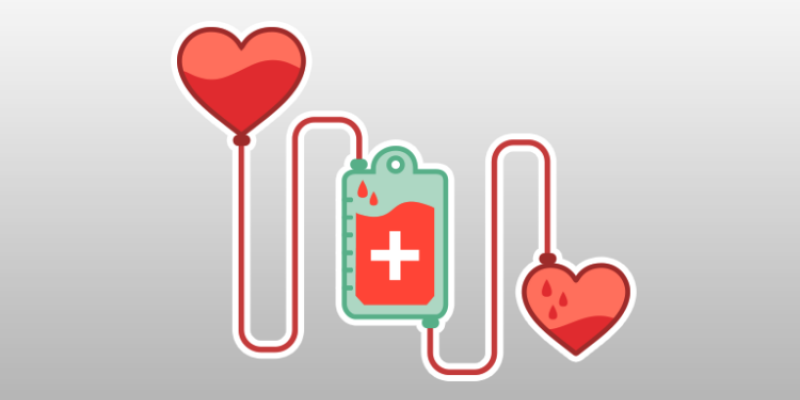What if you could do something in 1 hour that had the potential to help save three lives? Most of us would see that as an easy decision to make. Unfortunately, only 4% of Canadians who can do so will make that decision this year. The gift I am talking about is a blood donation. Blood is in constant demand in our society and so far, the only source for human blood is you guessed it- humans. It is essential for those involved in accidents, undergoing surgery and chemotherapy. To keep the supply fresh and plentiful, donors are always needed. With so many different blood types to match, a wide variety of donations are needed- do you know your type?
So, who is eligible to donate? Donors must be at least 17 years old and weigh a minimum of 110 pounds and be at least 4’10”. A chart of height and weight requirements for those first-time donors 17-23 years old can be found at www.blood.ca . They must be in good health and have adequate iron (this is evaluated prior to donating). You may be unable to donate for reasons that could either compromise your own health or the safety of the blood supply. Recent vaccinations, dental work, tattoos, pregnancy, low hemoglobin counts, and certain medications can lead to a temporary period where you cannot donate. Having diseases such as HIV/AIDS, chronic fatigue syndrome, or insulin treated diabetes will lead to a permanent inability to donate. Similarly, exposure to mad cow disease, potential exposure to certain African countries and engaging in activities such as taking money or drugs for sex will mean that you are ineligible to donate. In November 2023, new research emerged about individuals who lived or spent time in the United Kingdom, Ireland or France in the 1980s and 1990s. Previously, these individuals were barred from donating due to mad cow outbreaks in those countries during that time. As of December 2023, that ban has been lifted, meaning that 70,000 more Canadians would be eligible.
If you have decided that you feel well and you have not “gotten ink done” or received surgical treatment/blood in Cameroon and you are considering making a donation, then do it with no worries. I assure you that blood donations do not put you at risk. Only sterile, one-use needles are used in blood donation, so you are not at risk of infection. And if it is the loss of blood you worry about- fear not: Your body soon replaces what has been taken. An average person has 10.5 pints of blood in their bodies. A donation is just one pint, and your body will fully replace the volume in 24 hours and the red cells within 4-8 weeks. How often can we give? Every 56 days, you are eligible to give. This means that a donor can give six times per year! And the best part (apart from saving lives of course) is that once you are done, you get snacks and drinks! The next clinic in our area is at the Joe Thornton Community Centre on Wednesday, June 5th) from 1:00 pm until 7:00 pm. Why not make the effort to save a life? You never know, it could be the life of someone you love that you are saving, even yourself.
Take care of yourselves and each other.
Steve Bond BScPhm, RPh, CDE, FASCP








